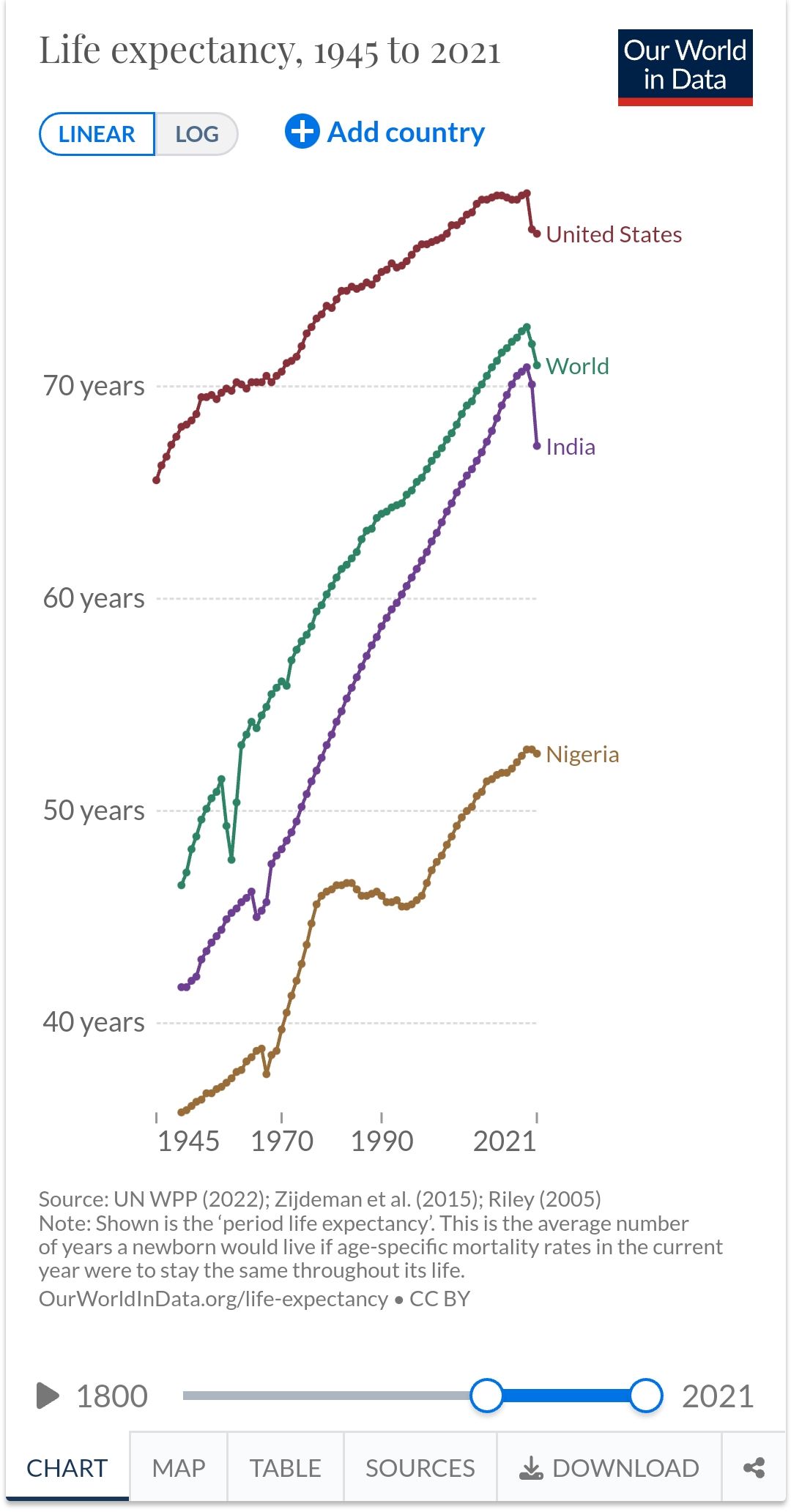
Doesn't have to be all poverty, just most. A repressive regime that keeps its own citizens in poor conditions will not prevent this market from resolving to YES. (Unless most of the world has come under the influence of such a repressive regime.) Nor will a few people here and there who slipped through the cracks in an otherwise robust system.
To count as not being in poverty, people should be able to access a similar range of goods and services to those accessible by the global elite. (e.g. it's ok if not everyone can afford luxury goods, but they shouldn't have a vastly lower life expectancy or serious health issues that are curable for the rich.)
I asked a question with a related metric that is very measurable and clearly defined, and so far it is running to the exact probability this question is. https://manifold.markets/B/global-poverty-will-world-average-l
I think this is an interesting question but it needs to be much better specified.
e.g. you could argue >95% of everyone in the world living in a democratic country already has things that only the global elite had in 1900 and so from the perspective of the world in 1900, systemic poverty has already been eliminated.
I suppose life expectancy is a decent indicator. Africa's most populous country still lags behind the US by several decades.

@IsaacKing As long as you're committed to the "I know poverty when I see it" frame I'm not sure I can add much more. Personally I would define the market according to objective criteria. If you are committed to a more subjective definition, at the least it needs to be consistent with objective facts--e.g., as I said before, North Korea does take foreign aid, though your description currently still describes it as a place that "refuses to let anyone help".
if the answer isn't yes by 2050 then the overwhelming majority of humanity will be in systemic poverty or about to die. or already dead. There's no world in which the AI versus human war comes out with humans on top, the war has to never be fought. and to prevent such a war, only ending poverty for all beings would be sufficient; It would have to be a sufficiently universal solution to also apply to poor agentic machines.
@L so I see this yes bet as "we will, for the first time ever, introduce reliable safety guarantees for evolution that can reliably prevent malthusian attractors".
One could argue that "A repressive regime like North Korea that keeps its own citizens in poor conditions and refuses to let anyone help" is already the cause of much (almost all?) global poverty. The argument in abstract form is here:
https://www.youtube.com/watch?v=rStL7niR7gs&ab_channel=CGPGrey
How do you plan to judge whether remaining poverty is due to "repressive regimes like North Korea"? This seems like information that's very hard to access.
@B I didn't know that, thank you. I guess the question then is whether the aid they accept is "enough". If the rest of the world transitions to a post-scarcity economy, will the repressive regime allow their citizens to receive the same?
@IsaacKing https://www.worldometers.info/ Perhaps use some kind of data from here to more precisely quantify what qualifies as the elimination of poverty.
Undernourished people in the world
People with no access to a safe drinking water source
These should be near 0.
Deaths of mothers during birth this year
Deaths caused by HIV/AIDS this year
Deaths caused by malaria this year
These should be down to the rate they currently are in the US. (I'll allow malaria deaths to be a bit higher, since equatorial regions are at a disadvantage compared to the US.)
The number of people below the international poverty line should also be near 0.
I'm avoiding specifying a single metric because:
Organizations have a tendency to goodhart around metrics like that.
I don't necessarily trust reporting of those statistics to be accurate.
More than one thing matters.
Basically, I'm trying to ask "will humanity have gotten it together and stopped letting its members suffer when they could trivially just ...not."
@tcheasdfjkl Food with sufficient nutritional content, clean water, a sanitary environment, care for serious injury. Enough to bring life expectancy to near the global maximum.
@tcheasdfjkl Then the bar for this market increases with it. If half the world has become immortal and can satisfy any material desire, and the other half is forced to live out a paltry 80 years of life of hard labor just because the first half doesn't care about their well-being, that seems like poverty to me.
@IsaacKing This seems like an important modification of the original description and should probably be added to the main description. I also think it makes the resolution criteria much more subjective than it originally appeared since we don’t know how your goal post is going to move relative to different global maxima.